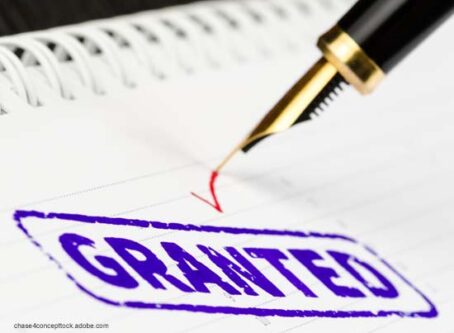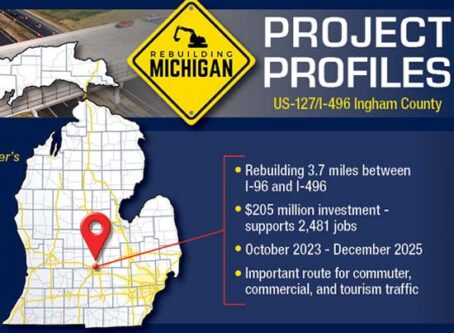Officials in 11 states look for more revenue via alternative-fuel vehicles
As states continue to wait on the federal government to reach a transportation funding deal, work continues at statehouses to come up with their own solutions to help boost transportation funding. Among the options getting attention in legislatures from the Pacific Northwest to the Appalachians is tapping alternative-fuel vehicles for additional revenue.
In an effort to encourage people to pursue more fuel-efficient options, many states now offer financial incentives for hybrid and electric vehicle owners. As popularity for such vehicles is anticipated to grow, more and more state officials are concerned about the lost transportation revenue that results from fuel-efficient vehicles.
According to the National Conference of State Legislatures, 20 states impose additional fees for the registration and licensing of certain affected vehicles. Below are some notable efforts at statehouses to raise more revenue from hybrid and electric vehicles.
Arizona
The House Transportation Committee has voted to advance a bill that would more than double the state’s fuel tax rate.
Committee Chairman Rep. Noel Campbell, R-Prescott, said his bill would ensure that everyone is paying their fair share of ongoing maintenance of the state’s transportation system.
Campbell says the state is nearly $1 billion per year behind in transportation obligations.
“This is a heavy lift. It’s a big bill. This is an absolute necessity for the state of Arizona,” Campbell said during a hearing on the bill. “It’s a tax bill. There is no doubt about it. I’m not going to play games. It’s a user fee. Everybody that uses our roads is going to pay their fair share.”
As amended, HB2536 would increase the 18-cent gas tax rate by 15 cents over three years. At that time, the gas tax rate would hit 33 cents.
The 18-cent tax on diesel would be raised by 33 cents to a total of 51 cents over five years.
Electric and hybrid vehicles would be subject to a “corresponding road usage fee.”
Specifically, registration fees for vehicles operated by a combination of electricity and other fuels would be $80 per year. Owners of all-electric vehicles would pay another $198 annually.
A separate tax would be applied to electric vehicles. Once fully implemented, smaller vehicles would pay $198 annually. The largest vehicles in the state would pay $5,500 per year.
Tax and fee amounts would also be tied to inflation to allow for regular increases.
The bill awaits further consideration in the House.
Arkansas
Bills introduced in both statehouse chambers would raise road revenue via a new wholesale fuel tax, increased license fees on hybrid and electric vehicles, and through other state revenue.
The Senate bill would raise nearly $100 million annually for the state Department of Transportation.
The legislative action follows Gov. Asa Hutchinson’s proposed funding plan that would raise more than $400 million each year, with counties and cities receiving about one-quarter of the amount.
SB336 would implement a wholesale fuel tax that would amount to a 3-cent-per-gallon gas tax increase. The diesel tax would increase by 6 cents. The new tax would also be indexed to increase by up to one-tenth cent per year.
The wholesale tax is estimated to raise $58 million annually.
Another $1.9 million would come from increasing registration fees for hybrid and electric vehicles.
The majority of revenue would come from extending permanently the half-cent sales tax that is dedicated to highways. The tax was implemented in 2012 with a 2023 sunset date.
Separately, casino taxes totaling $35 million would be routed to roads and bridges.
The House version is HB1495.
Illinois
Two House bills target electric and hybrid vehicles for additional road revenue.
The state already collects a $35 fee over two years on electric vehicles.
HB2053 would set a registration fee for electric vehicles of up to $216 each year. Additionally, a registration fee for hybrid vehicles would be set at $158.50 annually.
HB2752 would charge owners of hybrid vehicles an additional $57 annually.
Iowa
Electric vehicles are one source of revenue being eyed in Iowa to help address transportation funding needs.
An Iowa Department of Transportation report shows a nearly $317,000 hit to the state’s road use tax fund one year ago. Among the options to help address the funding dip is adding taxes for electric vehicles.
The state pays for infrastructure needs largely through a 30.7-cent excise tax on gas and 32.5-cent tax on diesel. It is estimated the taxes will raise $650 million for the current fiscal year.
The Iowa DOT report predicts that fuel tax revenues will be reduced in the decades ahead as more and more people purchase alternative-fuel vehicles.
In an effort to prevent some losses in tax revenue the agency recommends multiple methods to raise new revenue. The methods listed are an excise tax based on per kilowatt-hour of electric vehicle charging; an annual registration fees for battery-electric vehicles, plug-in hybrid electric vehicles; and a fuel excise tax on hydrogen fuel cell electric vehicles.
The agency is proposing to collect a $130 annual registration fee on electric vehicles. A $65 yearly fee would be charged to hybrid vehicle registrations.
Minnesota
Rep. Duane Quam, R-Bryan, has introduced a bill to collect an alternative-fuel vehicle tax.
Quam says the tax would provide “a reasonable contribution” for road funding from affected vehicles.
He says it is a better alternative to proposals based on mileage that would require “a massive an expensive support and reporting system.”
HF466 would permit the Department of Public Safety to set the tax rate.
Mississippi
Multiple efforts underway at the Mississippi statehouse would go the other way for tax collection on alternative-fuel vehicles.
State law implemented on Oct. 1 imposes a $75 registration and renewal fee on hybrid vehicles. Electric car owners are responsible for paying a $150 tax.
Three bills – HB604, HB832 and HB882 – would repeal the taxes collected on hybrid and electric vehicles.
HB907 and SB2265 would relieve owners of hybrid vehicles from the imposed tax.
Nebraska
The state of Nebraska collects a $75 annual fee for alternative-fuel passenger vehicles.
LB366 would raise the rate to $85 in 2020. Additional increases to $95, $105 and $115 would be imposed through 2023. The rate would settle at $125 by 2024 and each year thereafter.
New Hampshire
A proposal in New Hampshire would target fuel-efficient vehicles to replace declining tax revenue for roads.
Vehicles with gas mileage over 20 miles per gallon would have a vehicle registration surcharge. The tax would top out at $100 annually for vehicles that get more than 50 mpg.
New Mexico
A 139-page bill in the House Taxation and Revenue Committee includes a provision to raise the state’s fuel tax rate by a dime.
Sponsored by Rep. Jim Trujillo, D-Santa Fe, HB6 would increase the current 17-cent excise tax on gas to 27 cents. The tax is unchanged since 1993. The 21-cent excise tax on diesel would be raised by 5 cents to 26 cents.
An additional fee would also be added for registering hybrid and electric vehicles.
Specifically, owners of electric vehicles would pay $50 annually and owners of hybrid vehicles would pay $30 annually.
An estimated $120 million in yearly tax revenue would be used for state and local roads. The state fund and local projects would split the revenue.
North Dakota
One idea getting attention in both statehouse chambers to boost transportation funding would tap electric and hybrid vehicles to help cover costs for road upkeep and construction.
Senators voted to advance a bill to collect a $110 annual “road use fee” on electric vehicles. Hybrids would see a $50 yearly fee.
SB2061 would also set up a legislative study on the infrastructure needs for electric cars.
Revenue estimated in excess of $260,000 annually would be used for state and local roads, and transit.
The House has approved a similar bill, HB1238, to collect a $120 registration fee for each electric vehicle. Hybrid vehicles are not included.
The House version is estimated to raise about $34,000 each year. It has moved to the Senate for further consideration.
SB2061 is in the House Transportation Committee.
Wyoming
The Senate Transportation Committee has approved a bill to collect more revenue from alternative-fuel vehicles. House lawmakers already approved it.
State law requires plug-in electric cars to have a decal costing $50 each year.
HB166 would increase the annual fee to $200. Hybrid vehicle owners would also need a sticker costing $100 annually.
The bill awaits a Senate floor vote.









